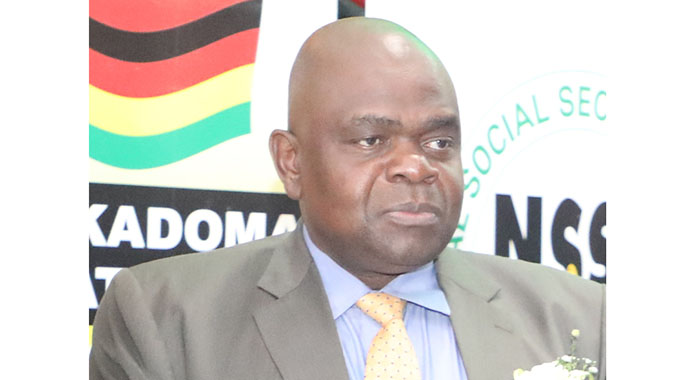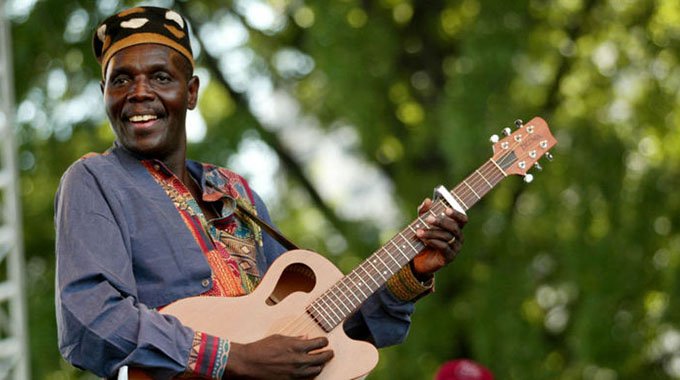TNF lays foundation for solid economic growth

Zvamaida Murwira THE INTERVIEW
President Mnangagwa launched the Tripartite Negotiating Forum this week, which brought together Government, business and labour to reflect and dialogue on the gravity of challenges confronting the country. The launch coincided with the signing into law by President Mnangagwa of the TNF Act. Our senior reporter Zvamaida Murwira (ZM) speaks to Mr Israel Murefu (IM), acting president of the Employers Confederation of Zimbabwe to hear the industry’s perspective on the TNF and how best all parties could move the country forward.
ZM: What is the difference of the recently launched TNF platform and initial TNF platform that was there before? What difference will the TNF Act make in your view as business?
IM: The initial platform was a loose platform where parties came on a voluntary basis without being bound by legislation, so I think that is a major shift because it was just a loose platform and no one really was responsible for ensuring resolutions were executed although we would have expected the Government to do that.
We think that it was slow and really Government was not bound by any law to carry forward the resolutions of the TNF.
ZM: From the way the law is structured, as business are you satisfied with the new TNF Act?
Do you feel that there might be some loopholes that might need to be plugged?
IM: I must say in the first place that the coming into being of the Act is a step in the right direction.
It is positive. What normally happens is that when you operationalise an Act of Parliament or a statute, you start analysing any weaknesses or loopholes that may exist or arise.
If there are there, you then take measures to close those loopholes either through a statutory instrument, which is easy to craft because it does not have to go to Parliament or you go back to Parliament and say you want a statute to enable you to do what needs to be done.
So we think that it is a good start, it may not be perfect, but the fact that we have started is a step in the right direction.
ZM: In your speech you made reference to the need to accommodate the informal sector.
To what extent does this sector add value to the TNF?
IM: I must start from the premise that when the International Labour Organisation crafted the concept of the tripartite negotiation, they didn’t anticipate that we would have a scenario that we currently have in Zimbabwe where we have the informal sector and the SMES as the biggest sector.
It’s the biggest sector now and we cannot ignore it. It has to fit into some of the structures of the TNF so that we can have inclusivity.
If they are excluded, it won’t help us because they have so many issues that affect them that need to be addressed. This sector also needs to grow into big business and including them can easily help it to formalise. It would become difficult I think, if we move on and leave them behind.
We need inclusivity so that we move ahead together as a country and as social partners that we interact under the auspices of TNF.
We feel that it is important to have the three key social partners leading, but we should also include others so that their voices are also heard. That’s the point I was trying to make.
ZM: You also made reference to the fact that the informal sector needs to be organised for it to be included in TNF.
In what way do you envisage them to be organised, particularly with regard to complaints that they are not paying taxes?
If they get organised, will some of their fears will be allayed? Will it help build trust and confidence on issues around taxation which some of them have been running away from for some time?
IM: I think we must separate the two. Being organised means that you have got structures and institutions through which your voice can be heard, for example you have the informal transporters, the kombis and so forth. They have their own associations, you have the vendors, they have their own associations, SMES have their own associations.
So what is needed is to improve the level of organisation so that they can speak with one voice and then be represented on the TNF platform. This is separate from issues of tax. Tax is about compliance with the tax law, it doesn’t matter whether you are formal or informal, you should still be compliant with the requirements of the fiscus in terms of tax.
So everyone who earns an income, and that income is taxable, they must pay tax regardless of their status, whether there are formal or informal. The only problem is that the taxman has got no mechanism of collecting that tax.
It is very difficult to know what is happening in the informal sector. But, in terms of structures for representation, that can be done without even affecting their tax situation.
ZM: In your view as business, do you think the way the TNF social partners are structured is a full package in the absence of political dialogue? In other words as social partners, will you achieve intended objectives without political dialogue?
IM: If you look at my speech, I actually spoke about other players and other agencies within the economy that also have a role to play in terms of creating an enabling environment.
The TNF is obviously not a political platform, this is a platform where we do not wear political hats, but politicians still need to play their role, which is to ensure that we have harmony in the country and to ensure that we have mechanisms for resolving our disputes in the country.
These may be political disputes, but TNF does not extend into the political domain, this is why I said we need all the other players and agents who can influence the environment to also play their part even if they are playing outside the TNF.
This is to make sure that when we put together all the efforts of the TNF, we can make progress as a country from a socio- economic point of view.
ZM: What mechanism is there under TNF to implement agreed positions? Do we have sufficient mechanism to ensure that agreed positions are implemented because that has been a thorny issue?
IM: Because everyone would have been involved, I do not see any reason for anyone not wanting to implement what they would have agreed. If it is Government, then they must explain to the other social partners why they cannot implement what they have assented to.
Once we have made a resolution and the resolutions are presented to Government as the facilitator of implementation, we expect implementation to be undertaken.
Otherwise it defeats the whole purpose of having the TNF. We know that TNF does not have powers to legislate, but I think the resolutions that it makes have the power of legislation, coming out of the TNF Act, and we think that it should persuade Government to implement those resolutions and those resolutions should inform Government policy because who else will the resolutions cater for if it does not cater for Government, business and labour and other parties that I said should be included.
We think the business of Government is to facilitate what the citizens want and what they would have directed Government to do, to which it would have also agreed.
So we do not see any reason why Government should prevaricate or not implement.
ZM: In your speech you said all the social partners have erred in the past. Can you unpack this? Where do you think you could have done better?
IM: I think the biggest mistake that we made as a tripartite was the speed of implementation. We dragged our feet, remember I spoke about values, having a shared values.
I think the starting point must be to have shared values and a shared vision. And then we say how do we move towards achieving that vision as a tripartite.
When the TNF started, there was no consensus. There was lack of trust and parties never trusted each other.
You are aware that the relationship between Government and labour is not good. The issue of trust also affected progress.
We cannot do anything without trust. All the sides need trust and confidence-building mechanism.
Once trust and confidence have been built, you will see that the speed of implementation will be improved.









Comments